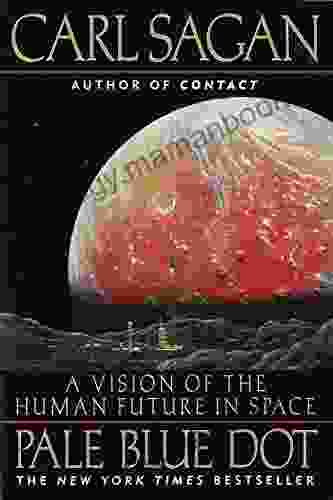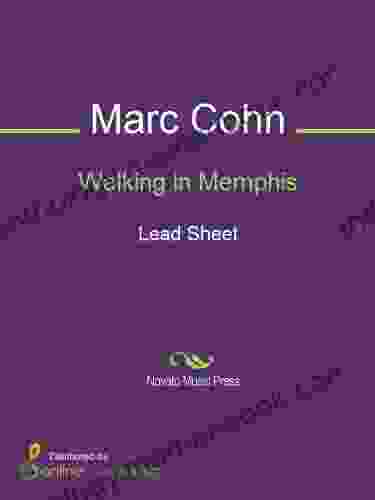Vision of the Human Future in Space: Exploring the Possibilities of the Final Frontier

**
**
4.7 out of 5
| Language | : | English |
| File size | : | 2537 KB |
| Text-to-Speech | : | Enabled |
| Screen Reader | : | Supported |
| Enhanced typesetting | : | Enabled |
| X-Ray | : | Enabled |
| Word Wise | : | Enabled |
| Print length | : | 386 pages |
Since the dawn of human civilization, we have gazed up at the celestial tapestry above, marveled at its beauty, and pondered the mysteries that lie beyond our reach. The advent of space exploration has fueled our collective imagination, opening up a realm of possibilities for the future of humanity in the boundless expanse of the cosmos. In this article, we will delve into the captivating visions of the human future in space, exploring the possibilities, challenges, and implications of our interstellar endeavors.
Colonizing Extraterrestrial Habitats
One of the most tantalizing prospects for human space exploration is the establishment of permanent settlements on other planets or moons. Mars, with its intriguing geological similarities to Earth, has long been a prime candidate for colonization. Missions such as NASA's Perseverance rover aim to pave the way for future human presence on the Red Planet, searching for habitable niches and resources to support life.
Beyond Mars, other celestial bodies like the icy moons of Jupiter and Saturn hold promise as potential homes for humanity. Europa, with its vast subsurface ocean, and Titan, with its methane-rich lakes and rivers, present intriguing opportunities for scientific exploration and potential sources of water and organic compounds.
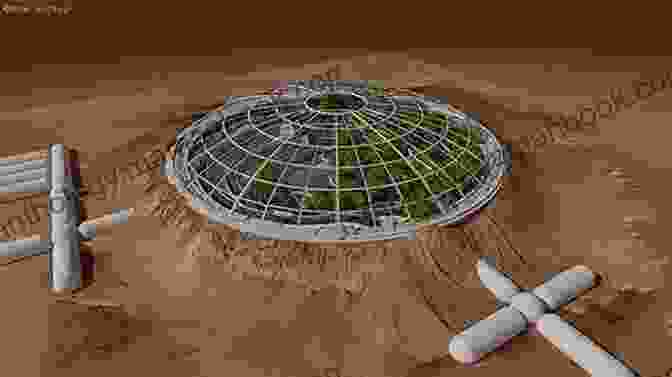
Expanding Our Scientific Knowledge
Space exploration serves as a catalyst for groundbreaking scientific discoveries, broadening our understanding of the universe and ourselves. By studying other planets, moons, and galaxies, we gain insights into planetary formation, astrophysics, and the search for life beyond Earth.
Telescopes like the Hubble Space Telescope and future projects like the James Webb Space Telescope have revolutionized our perception of the cosmos, revealing the existence of distant exoplanets, black holes, and the faint glimmer of the early universe. Missions to collect samples from asteroids and comets provide valuable clues about the origins of our solar system and the potential for life in extreme environments.
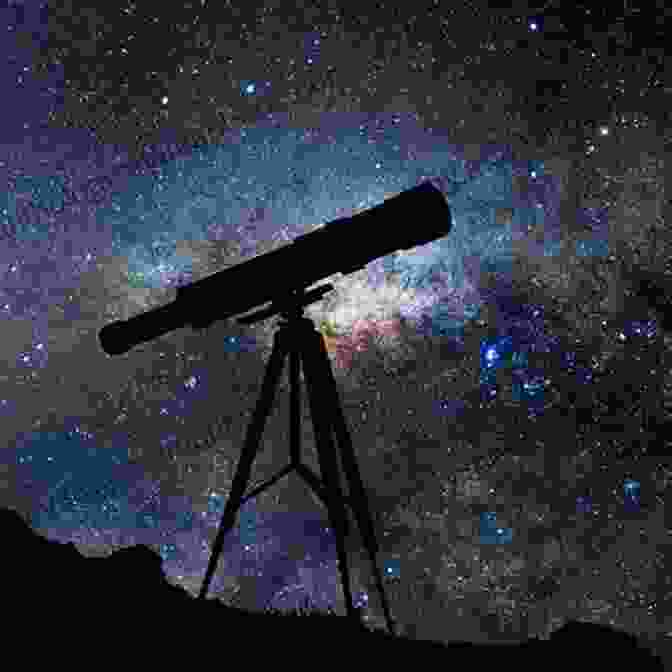
Harnessing Space Resources
Space also holds the potential for immense economic benefits. The mining of asteroids and moons could provide access to rare earth elements, metals, and water, vital resources for industries and advancements on Earth.
Additionally, solar power satellites in geostationary orbit could harness the sun's energy on a massive scale, transmitting electricity wirelessly to ground stations, offering a potentially limitless and environmentally friendly source of power.
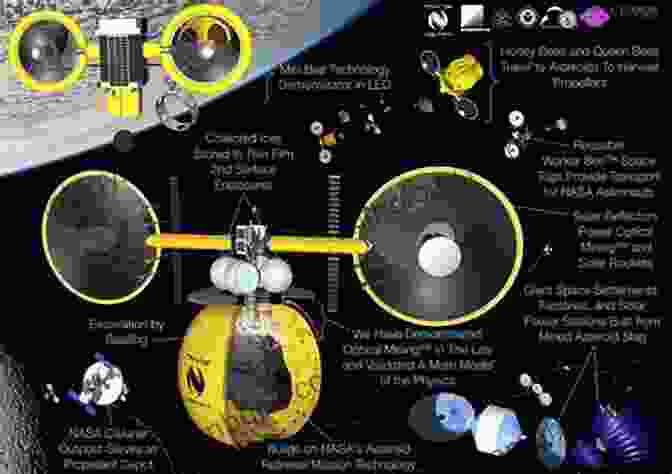
Challenges and Obstacles
Despite the allure of space exploration, numerous challenges and obstacles await us on this ambitious journey. The vast distances and unforgiving environment of space pose significant hazards to human health and safety. Radiation exposure, microgravity, and the psychological toll of isolation require innovative solutions to ensure the well-being of astronauts in space.
Financial constraints, technological limitations, and international cooperation can also hinder the pace and scope of space exploration. Balancing scientific, commercial, and geopolitical interests is essential for sustainable and collaborative progress.
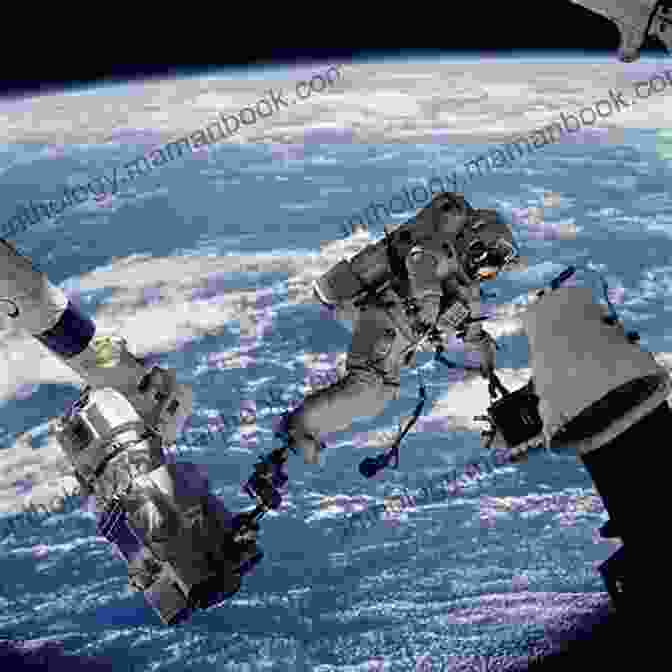
Ethical and Philosophical Implications
As we venture deeper into space, profound ethical and philosophical questions arise. The discovery of extraterrestrial life, whether microbial or intelligent, could challenge our understanding of our place in the universe and raise fundamental questions about consciousness, evolution, and the meaning of life.
The potential militarization of space and the allocation of limited resources for space exploration versus terrestrial concerns require careful consideration and ethical decision-making. Striking a balance between scientific advancement, human well-being, and the preservation of our planet is paramount.
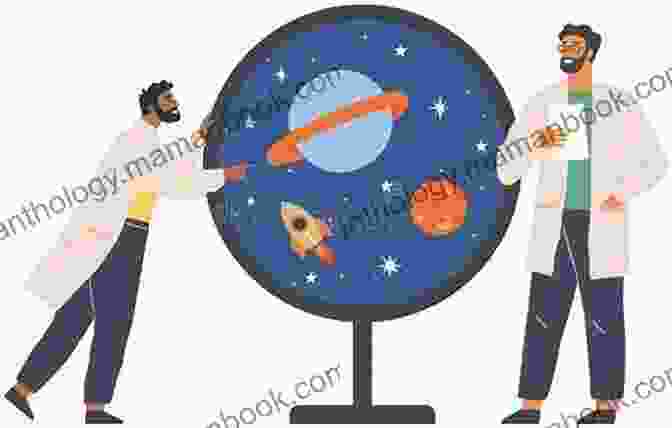
The Future of Human Space Exploration
The future of human space exploration is as boundless as the cosmos itself. From the establishment of lunar gateways to the exploration of distant star systems, the possibilities are both tantalizing and daunting.
International cooperation, technological innovation, and a shared sense of purpose will be essential for navigating the challenges and unlocking the potential of space exploration. The journey into the vast expanse above will continue to inspire and challenge us, pushing the boundaries of human ingenuity and shaping the destiny of our species.
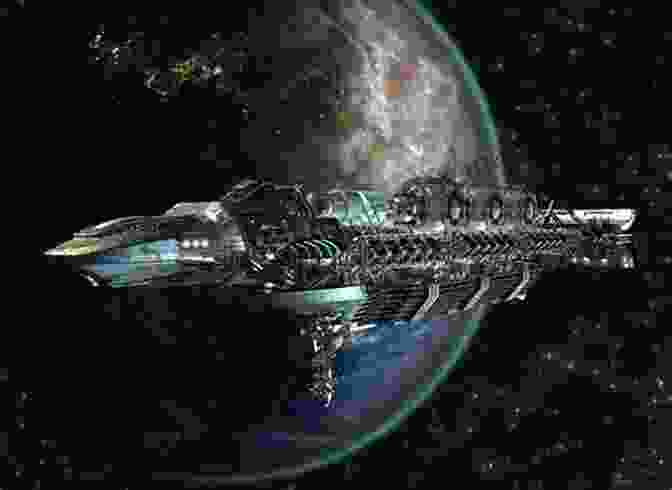
The vision of the human future in space is a tapestry woven with both the wonders of scientific discovery and the complexities of ethical decision-making. From colonizing extraterrestrial habitats to harnessing space resources and pushing the boundaries of human knowledge, the possibilities are limitless.
As we embark on this extraordinary journey, it is imperative to approach it with wisdom, humility, and a deep sense of responsibility. For in the vastness of space lies not only the promise of a future among the stars but also a profound reflection of our humanity and the choices we make in shaping it.
4.7 out of 5
| Language | : | English |
| File size | : | 2537 KB |
| Text-to-Speech | : | Enabled |
| Screen Reader | : | Supported |
| Enhanced typesetting | : | Enabled |
| X-Ray | : | Enabled |
| Word Wise | : | Enabled |
| Print length | : | 386 pages |
Do you want to contribute by writing guest posts on this blog?
Please contact us and send us a resume of previous articles that you have written.
 Top Book
Top Book Novel
Novel Fiction
Fiction Nonfiction
Nonfiction Literature
Literature Paperback
Paperback Hardcover
Hardcover E-book
E-book Audiobook
Audiobook Bestseller
Bestseller Classic
Classic Mystery
Mystery Thriller
Thriller Romance
Romance Fantasy
Fantasy Science Fiction
Science Fiction Biography
Biography Memoir
Memoir Autobiography
Autobiography Poetry
Poetry Drama
Drama Historical Fiction
Historical Fiction Self-help
Self-help Young Adult
Young Adult Childrens Books
Childrens Books Graphic Novel
Graphic Novel Anthology
Anthology Series
Series Encyclopedia
Encyclopedia Reference
Reference Guidebook
Guidebook Textbook
Textbook Workbook
Workbook Journal
Journal Diary
Diary Manuscript
Manuscript Folio
Folio Pulp Fiction
Pulp Fiction Short Stories
Short Stories Fairy Tales
Fairy Tales Fables
Fables Mythology
Mythology Philosophy
Philosophy Religion
Religion Spirituality
Spirituality Essays
Essays Critique
Critique Commentary
Commentary Glossary
Glossary Bibliography
Bibliography Index
Index Table of Contents
Table of Contents Preface
Preface Introduction
Introduction Foreword
Foreword Afterword
Afterword Appendices
Appendices Annotations
Annotations Footnotes
Footnotes Epilogue
Epilogue Prologue
Prologue Sarah Mahmood
Sarah Mahmood Mary Lynn Stewart
Mary Lynn Stewart Jessie Ash
Jessie Ash Jason Pinter
Jason Pinter Avid Reader
Avid Reader Lucie Brock Broido
Lucie Brock Broido Wayne Luckmann
Wayne Luckmann Porsha Olayiwola
Porsha Olayiwola William Davis
William Davis Wallace Stroby
Wallace Stroby David Mann
David Mann Robert Bryndza
Robert Bryndza Jennifer Lynn Barnes
Jennifer Lynn Barnes Mas Tellocin Eniatnof
Mas Tellocin Eniatnof Alison Scott Wright
Alison Scott Wright Nolan Cary
Nolan Cary River Jackson
River Jackson Michael Downes
Michael Downes Roger Eschbacher
Roger Eschbacher Brad Wetzler
Brad Wetzler
Light bulbAdvertise smarter! Our strategic ad space ensures maximum exposure. Reserve your spot today!

 Forrest BlairContender Tanner Novel 38: A Deep Dive into the Thrilling Conclusion of the...
Forrest BlairContender Tanner Novel 38: A Deep Dive into the Thrilling Conclusion of the...
 George Bernard ShawThe Enigmatic You: Unraveling the Meaning Behind Jessie Ash's TG Captions
George Bernard ShawThe Enigmatic You: Unraveling the Meaning Behind Jessie Ash's TG Captions Octavio PazFollow ·9.3k
Octavio PazFollow ·9.3k Seth HayesFollow ·5.4k
Seth HayesFollow ·5.4k Chad PriceFollow ·18.3k
Chad PriceFollow ·18.3k Chinua AchebeFollow ·13.7k
Chinua AchebeFollow ·13.7k T.S. EliotFollow ·8.2k
T.S. EliotFollow ·8.2k Fyodor DostoevskyFollow ·3.4k
Fyodor DostoevskyFollow ·3.4k Edgar Allan PoeFollow ·15.2k
Edgar Allan PoeFollow ·15.2k Beau CarterFollow ·3.7k
Beau CarterFollow ·3.7k

 Vernon Blair
Vernon BlairThe Woman I Met in My Dream: An Unforgettable Night of...
As the veil of night...

 Carlos Fuentes
Carlos FuentesThe Ultimate Guide to Healthy Eating for Toddlers: Meal...
As a parent of a...

 Peter Carter
Peter CarterInside My Autistic Mind: A Journey of Self-Discovery and...
Autism spectrum disorder (ASD) is a...

 Isaac Asimov
Isaac AsimovA Journey Through Jane Austen's Literary Masterpieces:...
Jane Austen, the renowned English...

 Hank Mitchell
Hank MitchellAdvancements in Textiles: Science and Technology by...
The textile...

 Troy Simmons
Troy SimmonsRecovery Road: An Odyssey of Hope and Redemption by...
Recovery Road is a...
4.7 out of 5
| Language | : | English |
| File size | : | 2537 KB |
| Text-to-Speech | : | Enabled |
| Screen Reader | : | Supported |
| Enhanced typesetting | : | Enabled |
| X-Ray | : | Enabled |
| Word Wise | : | Enabled |
| Print length | : | 386 pages |


